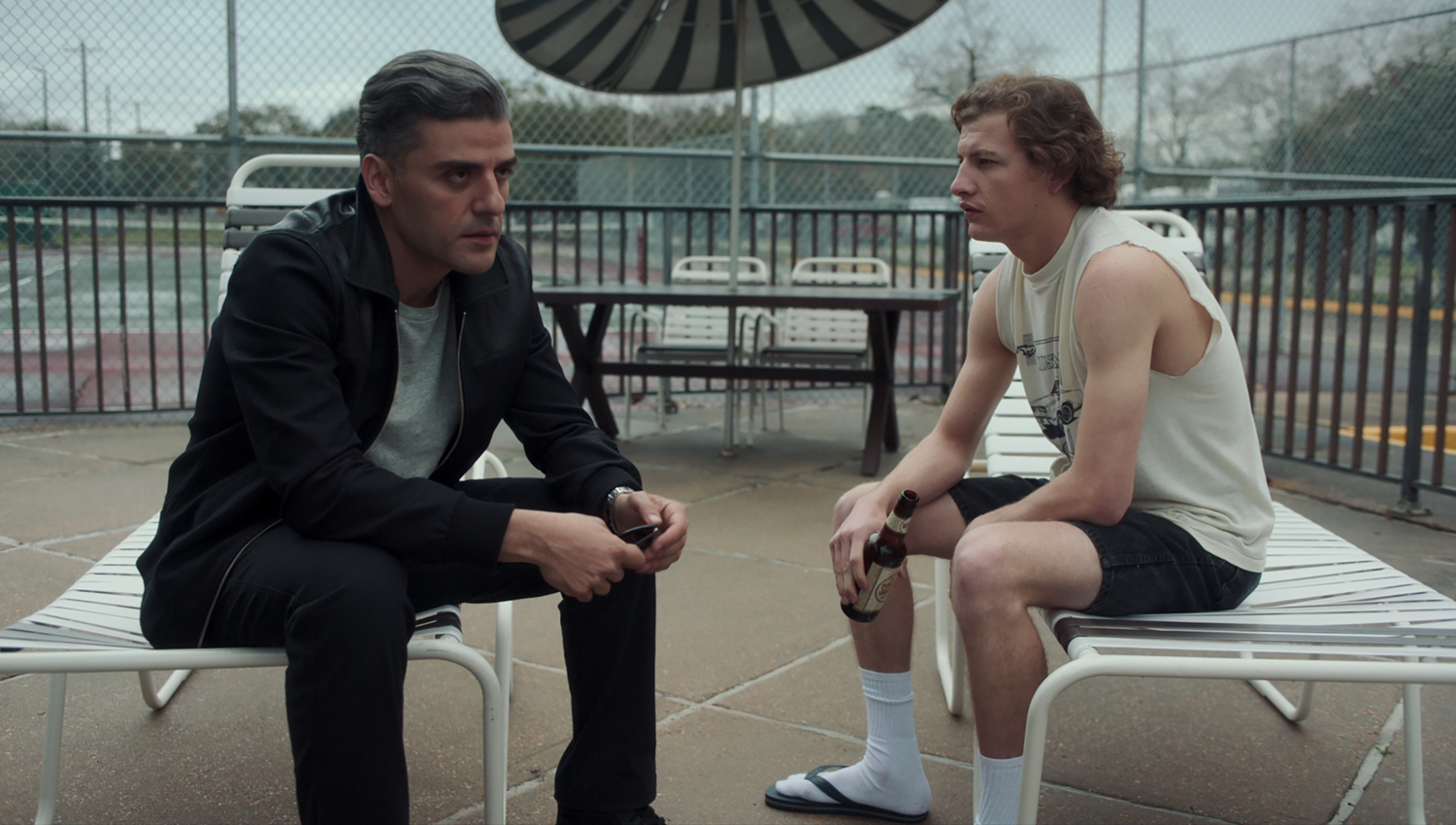
The Card Counter
Dustin Chase
Watching Paul Schrader’s latest film is like sitting in an early ’90s medical center waiting room. While you wait, there isn’t much to occupy your time except to look at paintings, magazines or the outdated furniture. Schrader creates a world in “The Card Counter” that’s inescapably dull on purpose. His characters have arrived at the complacent part of their lives, a familiar routine, as Oscar Isaac’s character explains. This intentional dullness translates to a lack of stimulation for the viewer. While Isaac is either purposely or unintentionally doing a 1980s Robert De Niro, it’s comedian-turned-serious-actor Tiffany Haddish who brings life to the film. Whereas Schrader’s previous film, “First Reformed” (2017), had much to say and dynamic performers saying it, “The Card Counter” comes up empty-handed on both accounts.
Schrader certainly succeeds at making the audience feel stuck right along with these characters in their seedy hotel rooms and old burgundy casino furnishings.
“Roulette is the only smart casino bet,” Tell explains. A game we never see him play. Every conversation in the film occurs as if the life has been completely sucked out of the characters. This could be because all three performances feel like the actors read different scripts or at least interpreted them differently. Or is the director intentionally presenting them this way? Either way, when La Linda is talking you’re always waiting for a punch line that’s never comes. When Tell stares at another person you’re waiting for him to get violent, and Sheridan has never looked so beat down in his appearance here. There are shards of sarcasm throughout, but Schrader keeps it dark and downtrodden like the rest of his work.
The studio approved description for the film uses words like “intensity” and “thriller.” However, the intensity is muffled and the thrills are suppressed, even the one scene of violence is shown off screen. The subtext in Schrader’s script is about trauma and coping mechanisms, and Isaac deserves credit for his acute portrayal that’s subtle to the point that we almost missing what he is delivering. Schrader certainly succeeds at making the audience feel stuck right along with these characters in their seedy hotel rooms and old burgundy casino furnishings.
Final Thought
“The Card Counter” isn’t a thriller, gambling film or even much of a revenge film, but it’s moody from beginning to end
